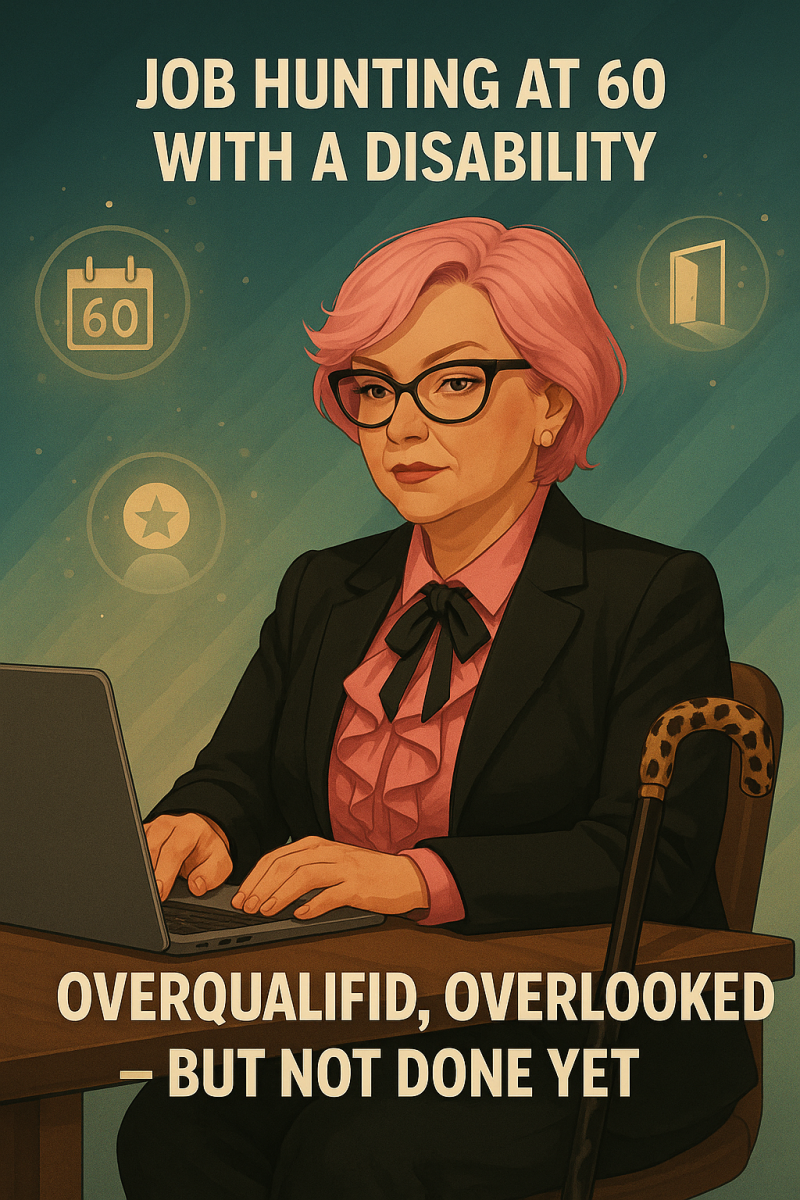By Prof Sherry | ProfSherry.com
I’m 60. I have decades of experience, a strong work ethic, a rich portfolio of accomplishments—and yet, here I am, still sending out applications, still waiting for calls that never come.
It’s not that I’m not qualified. It’s not that I don’t know how to write a professional CV or interview well. It’s that recruitment, somewhere along the way, lost its soul.
The Age and Ability Bias is Real
Let’s be honest—ageism and ableism are still alive and well, even in 2025. According to a 2024 report by the Centre for Ageing Better, over one-third of people aged 50 to 69 believe they have been disadvantaged at work due to their age. The numbers are even worse when disability is added to the mix. The UK government’s Disability Confident Employer scheme might look good on paper, but in practice, disabled people are twice as likely to be unemployed as non-disabled people.
It stings when the job market seems more interested in keywords and algorithms than real human beings. You send your application into a black hole. You never get feedback. Sometimes, you don’t even get a rejection. It’s not just demoralising—it’s dehumanising.
Is AI Hurting or Helping?
Recruitment has changed. Automated tracking systems (ATS) scan your CV for keywords before a human ever lays eyes on it—if they do at all. It’s supposed to make hiring more efficient, but for people like us, it often means being filtered out before we even get a chance.
We’re told to "tailor our CVs" and "optimise for algorithms," but let’s be real: it feels like we’re playing a game where the rules keep changing, and the deck is stacked against us.
Here’s What I’ve Learned (And What I’m Doing About It)
I won’t sit in silence or shame. I’ve worked too hard and lived through too much to fade quietly into the background. Here’s how I’m fighting back—and how you can, too:
1. Own Your StoryRather than hiding my age or disability, I’ve started embracing it. My cover letters reflect the wisdom, resilience, and strategic insight I bring. I don’t tick boxes—I build bridges.
2. Network Relentlessly80% of jobs are never advertised. Reach out. Ask for coffee chats. Tell people what you're looking for. People hire people, not CVs.
3. Build Your BrandLinkedIn isn’t just for the young. I share insights, blog posts (like this one), and engage with industry content. Let the world see your value—don’t wait for a recruiter to figure it out.
4. Target Disability Confident Employers (and Hold Them Accountable)Yes, some employers are making progress. But look deeper—what’s their retention rate for older or disabled employees? Use Glassdoor, ask questions, and don’t be afraid to walk away if it feels performative.
5. Create Your Own OpportunitiesIf no one’s opening the door, build your own. I’ve started consulting, speaking, and empowering others through ProfSherry.com. You are not just employable—you are exceptional. Maybe it’s time to lead, not follow.
Final Thoughts
If you’re feeling exhausted, invisible, or fed up, know this: You are not alone—and you are not the problem.
The system may be broken, but your spirit isn’t. Keep showing up. Keep telling your story. Keep demanding better.
And if no one’s hiring you? Maybe it’s time to hire yourself.



Add comment
Comments